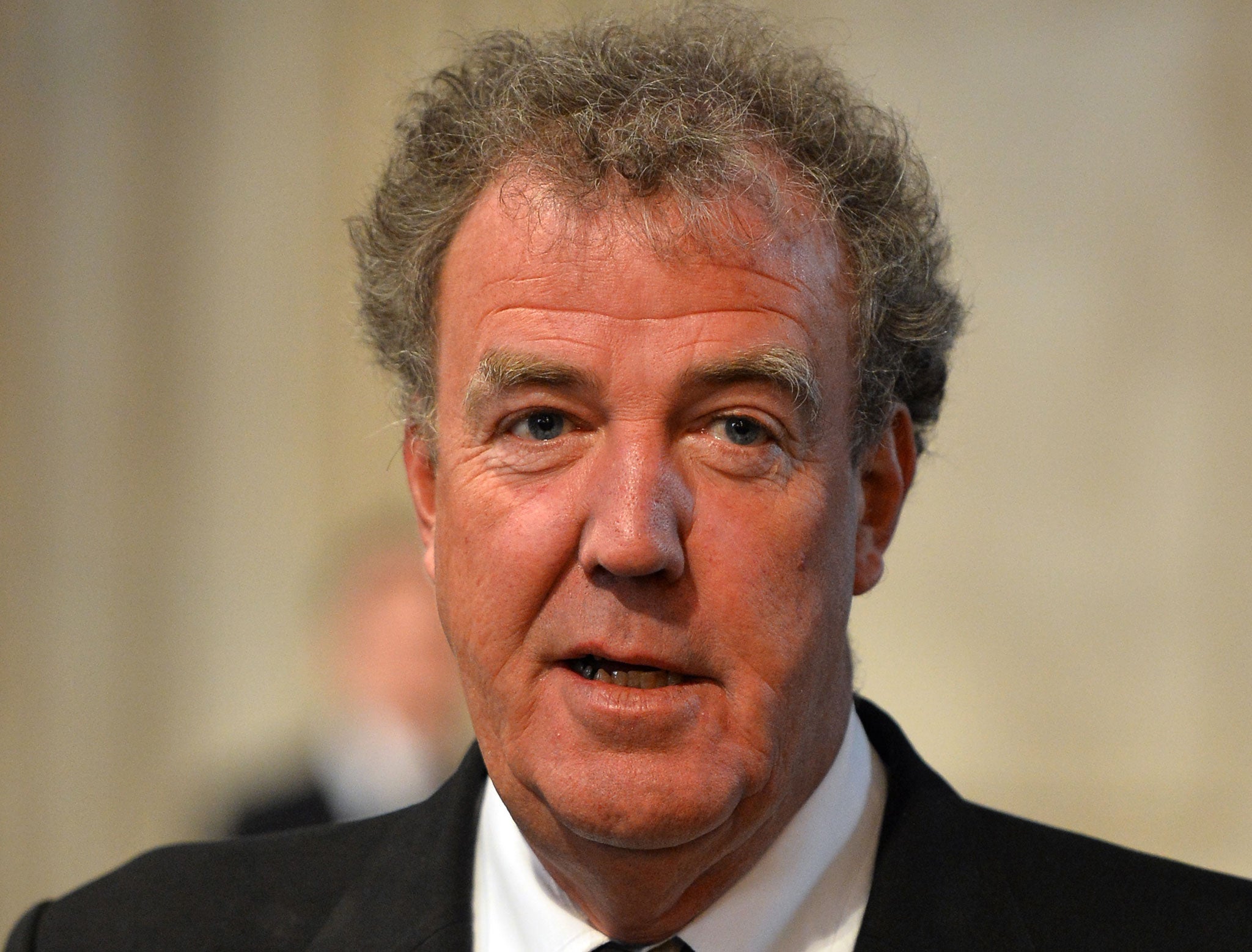Jeremy Clarkson is brave in opening up. So don’t sneer at him
Clarkson’s words reminded me that violent outbursts are so rarely about one human being simply adoring the feeling of hitting another


After five long weeks where the general public demanded Jeremy Clarkson explain himself over the Top Gear fisticuffs saga, finally, he did. And then we told him to shut up.
“Never complain, never explain” goes the old adage – attributed to Benjamin Disraeli – denoting the absurdity of trying to appease your enemies. Your friends don’t need explanations. Your enemies won’t believe them. Recently, as internet tittle-tattle increasingly governs our worldview, the advice has never been more apt.
Buttoning up and remaining aloof about your conduct will not stop Twitter and the sort of people who start e-petitions harping on, boggle-eyed with righteousness. But then neither will offering up conciliatory words or background detail either. As Clarkson found yesterday, “opening up” was simply more meat and bones for them to feast upon.
Better, perhaps, to have stayed quiet about the pain of losing his mother last March, combined with the break-up from his wife of 21 years last May, and his exit from the family home. Clarkson also admitted to a panic over a possibly cancerous lump in his mouth, to his obsessiveness about work, and to his tunnel vision. From anyone else this would have been startlingly honest, brave and trailblazing for other men suffering anxieties, but instead it was viewed by many as excuse-making and dishonest. In fact, worse than that, Clarkson was personally insulting the indefatigability of everyone who ever lost a mother, lost a breast, lost their home or lost their marbles without flipping out and landing a punch on someone else.
“I’ve had ... *insert miscellaneous terrible life threatening illness here* ... and I was never violent!” tweeted angry throngs of Clarkson despisers, to which I thought quietly, “Oh well, whoopy-doo for you. You were probably a massive pain in the arse in other ways.” Because none of us are faultless, selfless, above reproach at all times beings. None of us are above being absolute dicks under the correct tricky set of circumstances.
Then, having denounced Clarkson’s words – which to me sounded like a fairly feasible explanation of male midlife angst that so many men of the 40-60 bracket suffer – social media carried on with its usual ardent fight to have depression and specifically male suicide taken seriously. After all, it’s good to talk, we all agree. Just not you, Clarkson.
And isn’t it heartbreaking how men equate strength with silence, which is has fatal consequences? And, won’t you sponsor this charity bike-ride for CALM? And can’t you retweet this brave blog about this trouper with depression and break the stigma? And what’s that, Clarkson? Your mum died and your marriage broke down and you ended up sitting in pubs watching friends’ lips move but were so lost you could barely hear them? Oh, buck up. Stop making excuses.
One of Clarkson’s biggest problems, I can’t help but think, is that he’s become something writer James Bartholomew brilliantly identified last week – “a virtue signaller”. That is, a cultural figure or happening which it’s vital to pepper conversations with strong abhorrence towards in order to signify moral cleanliness.
Farage, Page 3, fossil fuels, bankers, Paul Dacre, Boris, Osborne and so on were some suggestions of things unfeasible to be simply neutral on. Bartholomew suggested, in fact, it is better for one’s reputation to be spotted tweeting strong views against Ukip, than say, getting off one’s arse and cooking for an elderly neighbour or volunteering to clean up the local canal.
My main feelings on reading Clarkson’s explanation of the events with Oisin Tymon were how behind almost every violent incident – in pubs and workplaces the length of Britain – there must be stories and cumulative effects like this at their root.
Nothing is an excuse or a “get off free” card for hitting another person. Neither is it our job to forgive Clarkson anyway as Tymon was the victim here. But Clarkson’s words reminded me that violent outbursts are so rarely about one human being simply adoring the feeling of hitting another one’s skin. The punches and slaps – which courtrooms hear about and sentence on all day long – are the worthless endgame of emotional distress, loss, low self-esteem, old painful recordings from childhood being replayed, exhaustion, voicelessness and misery.
Violence is never the answer to any of this, but it certainly might seem the answer in the 30 seconds leading up to landing a punch. And for about two minutes afterwards. Until the adrenalin ebbs away leaving the perpetrator more alone, worthless and misunderstood than before.
To be truly virtuous is to try to understand this, even if the person landing the punch is wholly unlikable, or even if at one point in 2007 they tied a dead cow to a Chevy Camaro or were chased from Argentina. Instead, right now, there is no room for redemption or a smattering of empathy for Jeremy Clarkson. He should, it seems, go and sit on the naughty step and stay schtum about the crippling emotional detritus of divorce, or how a man feels when he loses his mother. So, ironically, the most famous man’s man in Britain has opened up about black feelings. But we’re all too busy trumpeting our virtues to listen.
Join our commenting forum
Join thought-provoking conversations, follow other Independent readers and see their replies
Comments